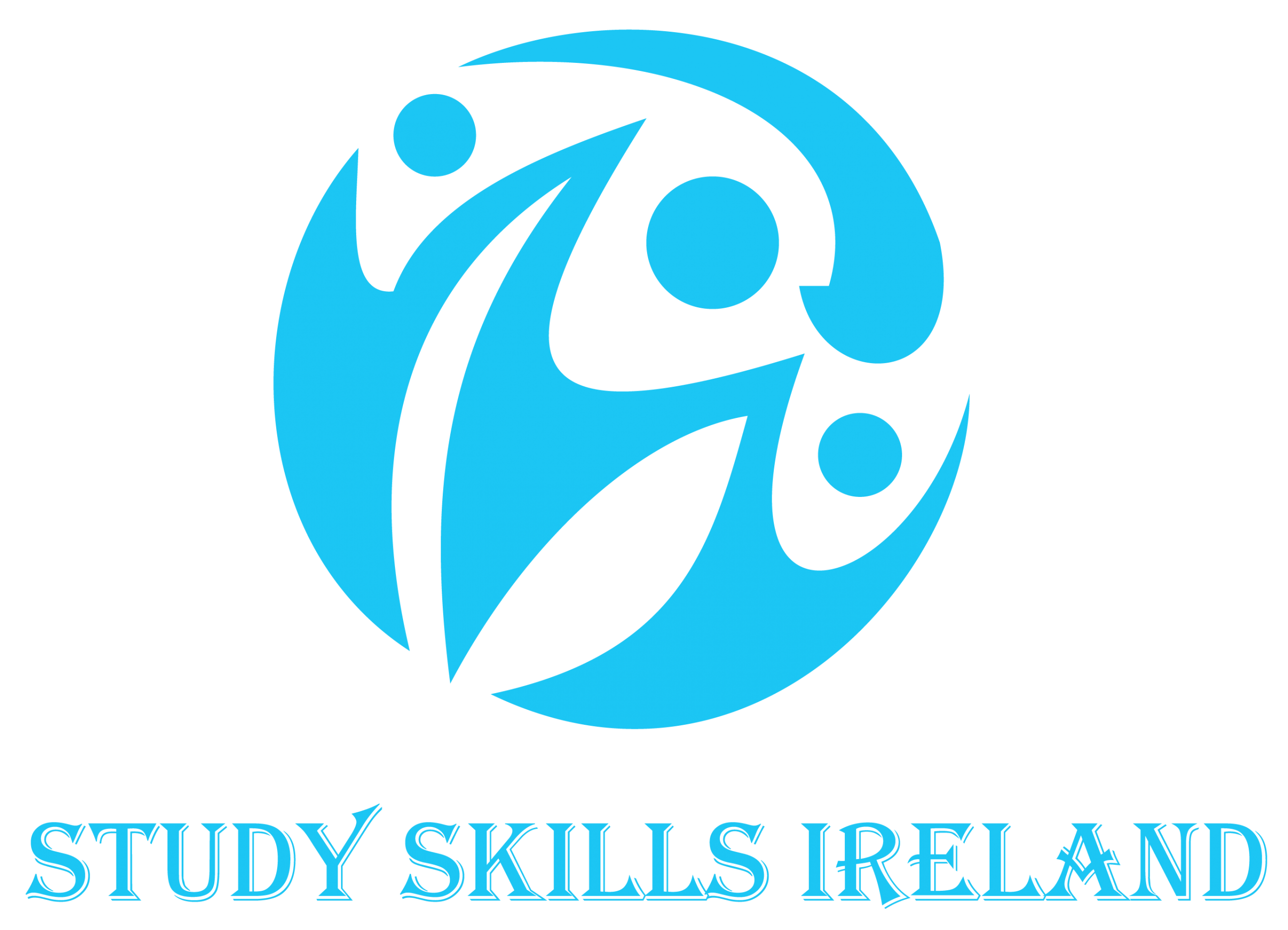As a parent, your deepest wish is to see your child succeed—especially when they’re preparing for high-stakes exams like the Junior Cert or Leaving Cert. These exams not only determine their academic future but also influence their journey toward college admission via the CAO process. But while your intentions may be well-meaning, the words you say to your child during these stressful times can either help them excel or create unnecessary anxiety.
You may not always realize it, but the language you use can have a profound effect on your child’s mindset and their ability to cope with exam anxiety. Negative, pressure-filled comments can lead to greater stress, self-doubt, and even hinder your child’s performance. On the other hand, positive, supportive encouragement can help them feel confident and motivated, leading to better results.
In this article, we will explore how certain phrases can impact your child’s mental well-being, offer practical advice on what to say (and what to avoid), and explain how you can help reduce stress and boost performance during critical exam periods. Whether your child is preparing for the Junior Cert, the Leaving Cert, or entering the CAO process for college, your support can make all the difference.

The Impact of Words: How Negative Comments Affect Your Child’s Performance
You may not think twice about saying things like, “I hope you do better than last time” or “Make sure you study harder than ever before!” However, these types of comments can have unintended consequences. Research shows that the way parents talk to their children during times of stress—like exam preparation—can have a lasting impact on their emotional state and academic performance.
When you focus on results rather than effort, it can create feelings of pressure that lead to exam anxiety. For example, telling your child, “If you don’t do well on this exam, you might not get into college,” can cause them to fear failure more than they fear working hard. It turns the exam into a source of anxiety rather than a challenge to rise to.
The reality is that exam anxiety is a very real issue for many students. And if your child is already struggling with feelings of inadequacy, comments that imply their worth is tied to exam outcomes can worsen these fears. The stress can cloud their thinking, disrupt focus, and leave them feeling defeated before they even sit down to study.
Instead of motivating your child to try harder, these types of statements may discourage them or create a self-fulfilling prophecy where their anxiety gets in the way of performing well. It’s important to recognize that exam stress doesn’t only come from the amount of material to cover; it often stems from external pressures, including how parents talk about exams.

The Importance of Positive Encouragement: How Constructive Language Can Help Your Child Succeed
The good news is that your words have the power to turn things around. Positive encouragement and constructive language can reduce anxiety, build confidence, and promote resilience. When parents focus on effort and perseverance rather than just the grade, they send a message that helps their children cope with stress in a healthier way.
Instead of saying, “You need to do better than last time,” try reframing it with a more supportive tone: “I’m proud of how much effort you’ve put into your studies.” This shifts the focus from outcome-based results to progress and hard work. Your child needs to hear that effort matters more than perfection and that doing their best is all that is expected of them.
Here are some other examples of supportive statements that can help reduce exam stress:
- “I know this has been tough, but you’re working so hard. Keep going, I believe in you.”
- “Exams are just one part of your journey. Your hard work will pay off, regardless of the results.”
- “I’m proud of how dedicated you’ve been, and no matter what, you are making great progress.”
By emphasizing their commitment, focus, and growth, you help your child see that the process is just as important as the outcome. This shift helps them maintain a positive attitude toward studying, lessens their exam anxiety, and encourages them to keep pushing forward with confidence.
Practical Advice for Parents: How to Speak to Your Child During Exam Time
It can be difficult to know exactly how to help your child when the pressure is on. You may feel the urge to push them harder or express concern about their academic future, but it’s essential to maintain a calm and supportive presence. Here are some practical guidelines for speaking to your child during their Junior Cert or Leaving Cert preparations:
1. Avoid Comparisons to Others
Every child is unique, and comparing your child to their peers can cause unnecessary stress. Comments like, “Why can’t you be more like [another student]?” or “Look at how much [sibling] is studying,” only serve to make your child feel inadequate. Instead, celebrate their individual progress:
- “I’m proud of how much you’ve improved in [subject]. Keep up the great work!”
- “Everyone has their own pace, and I can see how hard you’ve been working.”
These affirmations remind your child that their personal growth is what matters most, not where they stand in comparison to others.
2. Shift the Focus from Results to Effort
Instead of fixating on the outcome, focus on your child’s efforts. Acknowledge the hard work they’ve put into their studies rather than emphasizing the need for perfection. For example:
- “I’m proud of how dedicated you’ve been to your studies this year. You’re doing great.”
- “Don’t stress about the perfect grade; just do your best, and that’s all we can ask for.”
This approach helps reduce exam stress and reminds your child that their effort is more important than the grade they ultimately achieve.
3. Be Available to Listen—Without Judgment
Often, your child will need to talk about their stress and anxieties. Make sure to be available for these conversations without judgment. It’s important to let them express their concerns and fears, even if they don’t have all the answers. Reassure them that you are there for them, no matter what:
- “I know you’re feeling stressed, and I understand how difficult this is for you. Let’s talk about it together.”
- “It’s okay to feel anxious. I’m here for you, and we’ll get through this.”
By providing a listening ear, you allow your child to process their emotions in a healthy way, reducing unnecessary tension.
4. Reassure Them About the Bigger Picture
Exams like the Leaving Cert are important, but they don’t define your child’s future. Remind them that there are multiple paths to success, and one exam result does not determine their entire academic or professional journey. Help them see the bigger picture:
- “Remember, your exams are just one part of your journey. There are so many different opportunities ahead of you.”
- “No matter what happens, this doesn’t define who you are or what you can achieve in the future.”
This helps reduce feelings of pressure and reinforces that their future success is not solely dependent on exam results.
Managing Exam Stress: Practical Techniques for Parents and Students
Managing exam stress is crucial for both your child’s well-being and their academic success. Here are some effective strategies that can help your child stay calm and focused:
1. Create a Structured Routine
A clear study schedule helps your child feel in control of their time, reducing feelings of chaos and uncertainty. Encourage them to stick to a routine that includes study time, breaks, meals, and sleep. Structure provides a sense of security and helps manage exam anxiety.
2. Encourage Physical Activity and Relaxation
Physical exercise, even a short walk or a quick workout, can relieve tension and improve focus. Encourage your child to take short breaks to move their body. Additionally, mindfulness and relaxation exercises, such as deep breathing or visualization, can help calm their mind during stressful moments.
3. Support Proper Nutrition and Sleep
A balanced diet and enough rest are essential for optimal brain function. Encourage your child to eat healthy meals and get a good night’s sleep, especially as exams approach.
Need Help with Exam Preparation? Contact Study Skills Ireland for Individual Coaching
If you’re concerned about your child’s exam anxiety, or if they need personalized guidance on time management, study strategies, or stress management, Study Skills Ireland is here to help. I offer one-on-one coaching to help your child navigate the pressures of exams and prepare effectively for both the Junior Cert and Leaving Cert.
Whether your child needs help managing stress, developing a study plan, or simply needs someone to guide them through the process, I’m here to support their journey. Reach out to me today at 086677 2154 for personalized coaching tailored to your child’s unique needs.
Conclusion: A Parent’s Role in Supporting Their Child’s Academic Journey
The words you say to your child during exam preparation can either ease their exam stress or add to it. By shifting your language to focus on effort, progress, and resilience, you can help your child build confidence and tackle exams with a positive mindset. Encourage them to do their best, reassure them that their future is not defined by a single exam result, and support them through this challenging time.
Exams are just one part of their journey, and with the right guidance and encouragement, your child can navigate the process with confidence, ultimately achieving their best results and reaching their full potential.




